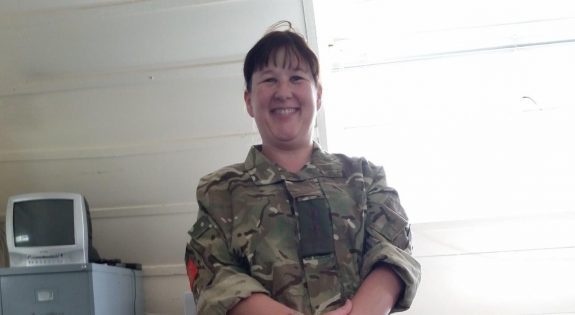News
July 6th 2018
The Medical Support Officer role explained
Earlier this year the Army Cadet Force (ACF) introduced a new role at county level, the Medical Support Officer (MSO).
Their role involves planning medical cover for camps, medical risk assessments, medicines management and ensuring that there is sufficient medical provision in the county.
It may not be the most glamourous role in the ACF but it is vitally important to ensure the safety and wellbeing of cadets.
In order to gain a better understanding of this role we spoke to Adult Volunteer Captain Gail Rawlings who has previously worked as a paramedic and now holds this responsibility for Derbyshire ACF. She explained: “In the past we have employed outside agency nurses who cover annual camp only but there is nothing better than an adult that knows what the cadets do, have tried the training themselves and appreciates the cadet experience.
“I understand cadets and adult volunteers as I have been involved for so many years. I listen to them, I try to comfort them and be their parent as much as I can. Being there every year also means I can gain a rapport with them.”
Gail was previously an instructor with the ACF holding the roles of First Aid Officer and then Area Staff Officer before leaving due to other commitments.
Upon re-joining she has taken on this role with Derbyshire ACF but she also acts as national course co-ordinator for the MSO training at Frimley Park in Surrey.
Gail explained: “The MSO course is great for adult volunteers. It consists of practical training and teaches the use of medical diagnostic equipment. Volunteers will learn how to measure blood pressure, pulse and temperatures.
“It also aims to give adult volunteers the information and the practical knowledge to understand medical emergencies and medical conditions.”
The course provides adult volunteers with clear direction on the treatment pathways they should follow for poorly cadets which means that care throughout the ACF is of an extremely high standard.
Gail concluded: “The role is great for the ACF, it enables the correct pathway for unwell cadets, it means fewer adults accompanying cadets to hospital or GP surgery, and it means everyone can enjoy camp without pain or discomfort.”
“The role is great for the ACF, it enables the correct pathway for unwell cadets, it means fewer adults accompanying cadets to hospital or GP surgery, and it means everyone can enjoy camp without pain or discomfort.”

